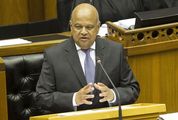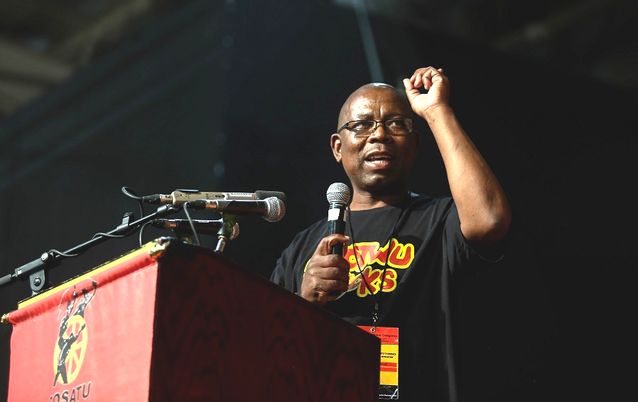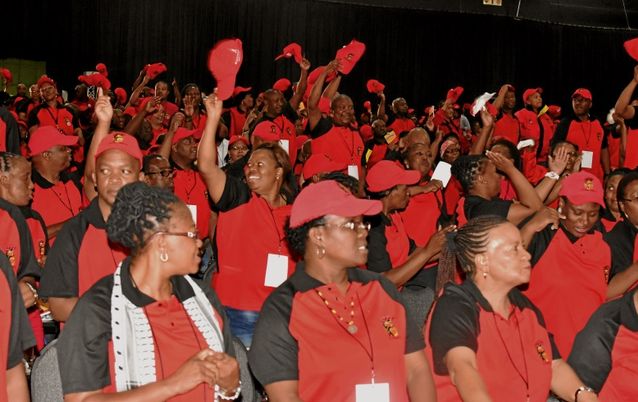THE Congress of South African Trade Unions (Cosatu) on Thursday welcomed Finance Minister Pravin Gordhan’s presentation of a budget that was a "commendable balancing act." However, it also expressed the same concerns as other organised labour groupings over the role of state-owned enterprises (SOEs) and the possible scape-goating of public servants.
Despite commending the Treasury for resisting "extreme austerity measures" called for "by neoliberal proponents", and increases in value added tax (VAT) the federation said on Thursday it was concerned about the silence regarding the partial nationalisation of SOEs.
Speaking at a briefing in Johannesburg on Thursday, Cosatu general-secretary Bheki Ntshalintshali said the federation would also move to combat constant commentary that public servants and the public service wage bill were responsible for SA’s economic woes.
"The bloated elements in the state are all too often found at the top and not at the service delivery level," he said. The federation is now expected to engage with the government on the role of SOEs, in order to protect their developmental mandate and strategic importance.
The National Council of Trade Unions (Nactu) and the Federation of Unions of SA (Fedusa) also pointed to inequality in public-sector wages on Wednesday. The federations said any effect of Treasury measures should not be felt only by lower-paid public servants, something that could effect those dependent on state services.
The National Union of Metalworkers of SA said on Thursday the speech was clear indication that a neoliberal, capitalistic economic trajectory was to continue. The union noted that despite increases in social welfare, inflation in key areas such as food and transport was likely to be well into the double digits.
"SA, just like the rest of Africa, is too rich to fail to provide for all its peoples. The problem is the current concentration of wealth and political power in the hands of a dominant but tiny filthy rich parasitic capitalist class and poverty for the majority," the metalworkers union said.
Cosatu also announced on Thursday it would not proceed with a socioeconomic strike at the beginning of March, having declared a partial victory in its fight against retirement law reforms.
The government has agreed to move swiftly to defer by two years clauses referring to the compulsory annuitisation of provident funds. Cosatu wants this scrapped completely.
A socioeconomic strike scheduled in March had been delayed, with Mr Ntshalintshali saying on Thursday the federation would continue to mobilise. Cosatu also reported on Thursday little progress was being made in terms of two National Economic Development and Labour Council (Nedlac) processes, which were aimed at the introduction of a national minimum wage and a framework for labour stability respectively.
Cosatu president Sdumo Dlamini said the lack of progress was disturbing, given that labour had been waiting for a national minimum wage for 62 years. While issues around strike ballots were being discussed between social partners, Cosatu felt the issue of strengthening collective bargaining was not getting as much attention from the government, it said.




























Change: 1.41%
Change: 1.74%
Change: 1.55%
Change: 1.65%
Change: 1.42%
Data supplied by Profile Data
Change: 0.57%
Change: 0.09%
Change: 1.41%
Change: 0.00%
Change: -0.13%
Data supplied by Profile Data
Change: 1.98%
Change: 1.44%
Change: 1.63%
Change: 1.88%
Change: 1.40%
Data supplied by Profile Data
Change: -1.21%
Change: -0.52%
Change: -0.90%
Change: -1.05%
Change: -2.05%
Data supplied by Profile Data